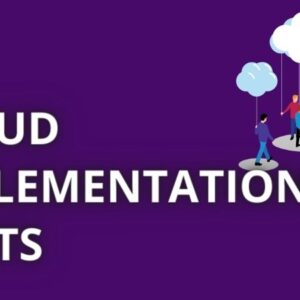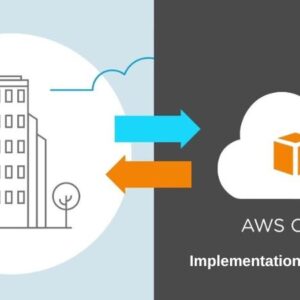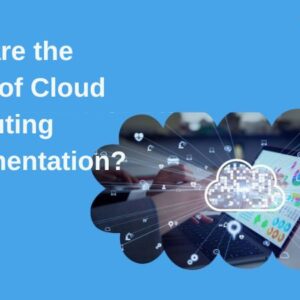In the dynamic landscape of modern marketing, staying ahead of the curve requires sophisticated tools and strategies. Salesforce Marketing Cloud stands as a beacon of innovation, offering a robust suite of solutions to engage customers across channels effectively. However, harnessing its full potential requires meticulous planning and execution. In this comprehensive guide, Crazyhot.net delve into the intricate process of Salesforce Marketing Cloud implementation, highlighting key steps and best practices to ensure success.
Assessing and Planning Your Salesforce Marketing Cloud Implementation
Before diving into the realm of Salesforce Marketing Cloud implementation, it’s crucial to conduct a thorough assessment of your organization’s marketing objectives and requirements. Evaluate how Salesforce Marketing Cloud aligns with your goals, considering factors such as audience engagement, campaign automation, and analytics capabilities. Engage key stakeholders across departments to gather insights and ensure alignment with broader business strategies.

Define clear KPIs to measure the success of your Salesforce Marketing Cloud implementation, whether it’s increased lead generation, higher conversion rates, or improved customer retention. Establishing a solid foundation during the planning phase sets the stage for a seamless implementation process.
Setting Up Your Salesforce Marketing Cloud Infrastructure
With a clear roadmap in place, it’s time to embark on the infrastructure setup phase of your Salesforce Marketing Cloud implementation journey. Provision your Salesforce Marketing Cloud account, ensuring it aligns with your organization’s structure and hierarchy. Configure user roles and permissions to grant access based on responsibilities and requirements.
Integration plays a pivotal role in maximizing the value of Salesforce Marketing Cloud. Seamlessly connect it with other Salesforce products, such as Salesforce CRM, to ensure a unified view of customer data. Additionally, integrate with third-party systems such as data warehouses and ecommerce platforms to enrich your marketing initiatives with comprehensive insights.
Integrating Data for Targeted Marketing Campaigns
Central to the success of any Salesforce Marketing Cloud implementation is the integration of relevant data sources. Import and integrate customer data from diverse channels, ensuring cleanliness and consistency to enhance targeting and personalization efforts. Leverage data segmentation strategies to organize your audience into distinct segments based on demographics, behaviors, and preferences.

By harnessing the power of data, Salesforce Marketing Cloud empowers marketers to craft highly targeted and personalized campaigns that resonate with their audience. From demographic segmentation to predictive analytics, data integration lays the groundwork for effective marketing strategies.
Configuring Email Studio for Engaging Campaigns
In the realm of digital marketing, email remains a cornerstone of communication with customers. Salesforce Marketing Cloud’s Email Studio provides a comprehensive toolkit for designing, creating, and sending engaging email campaigns. As part of your Salesforce Marketing Cloud implementation, configure Email Studio to align with your brand’s identity and messaging.
Customize email templates to reflect your brand’s aesthetics and messaging guidelines, ensuring consistency across all touchpoints. Set up subscriber lists and manage subscriber preferences to adhere to regulatory requirements and respect customer preferences. Implement email automation workflows to streamline campaign management and deliver personalized customer experiences at scale.
Leveraging Mobile Studio for Omnichannel Engagement (Optional)
In an increasingly mobile-centric world, reaching customers on their preferred devices is paramount. While optional, Mobile Studio within Salesforce Marketing Cloud offers powerful capabilities for mobile marketing initiatives. Configure Mobile Studio to create and manage SMS/MMS campaigns, leveraging the immediacy and intimacy of text messaging to engage customers effectively.
Additionally, harness the power of push notifications to engage users within mobile apps, driving user retention and app engagement. By seamlessly integrating mobile marketing into your Salesforce Marketing Cloud implementation, you can extend your reach and create cohesive omnichannel experiences for your audience.
Designing Customer Journeys with Journey Builder
Marketing is no longer just about sending out mass communications; it’s about orchestrating meaningful customer journeys. Salesforce Marketing Cloud’s Journey Builder empowers marketers to design and automate multichannel marketing campaigns that guide customers through their lifecycle stages. As part of your Salesforce Marketing Cloud implementation, leverage Journey Builder to create personalized and dynamic customer journeys.

Define triggers, decision points, and actions within Journey Builder to tailor the customer experience based on individual preferences and behaviors. Whether it’s welcoming new subscribers, nurturing leads, or re-engaging dormant customers, Journey Builder enables marketers to deliver timely and relevant interactions across channels.
Streamlining Operations with Automation Studio
Efficiency and scalability are paramount in today’s fast-paced marketing landscape. Automation Studio within Salesforce Marketing Cloud enables marketers to streamline repetitive tasks and orchestrate complex workflows with ease. As part of your Salesforce Marketing Cloud implementation, leverage Automation Studio to schedule and automate various marketing activities, from data imports to email sends.
Set up triggers and actions based on predefined criteria or customer behaviors to ensure timely and relevant communications. By automating routine tasks, marketers can focus their efforts on strategic initiatives and creative endeavors, maximizing the impact of their marketing campaigns.
Harnessing Analytics and Reporting Capabilities
Data-driven decision-making lies at the heart of successful marketing endeavors. Salesforce Marketing Cloud offers robust analytics and reporting capabilities to measure the performance of your campaigns and derive actionable insights. Configure Marketing Cloud Analytics to track key metrics and KPIs, generating reports and dashboards that provide valuable insights into audience engagement, conversion rates, and ROI.
Utilize A/B testing to experiment with different campaign elements and optimize performance based on empirical data. By continuously monitoring and analyzing campaign results, marketers can iterate and refine their strategies to drive better outcomes and maximize the ROI of their Salesforce Marketing Cloud implementation.
Fostering Training and Adoption
Even the most powerful technology is only as effective as the people who use it. As part of your Salesforce Marketing Cloud implementation, prioritize training and adoption initiatives to empower users and maximize utilization. Provide comprehensive training sessions to familiarize users with Salesforce Marketing Cloud’s features and functionalities, catering to diverse skill levels and roles within your organization.
Encourage adoption by showcasing successful campaigns and real-world examples that demonstrate the value of Salesforce Marketing Cloud. Foster a culture of continuous learning and innovation, empowering users to explore new features and experiment with different strategies to achieve their marketing objectives.
Embracing Continuous Improvement
The journey doesn’t end with the initial Salesforce Marketing Cloud implementation; it’s an ongoing process of optimization and refinement. Stay abreast of new features and enhancements released by Salesforce Marketing Cloud, leveraging them to enhance your marketing strategies and stay ahead of the competition.
Regularly review and analyze campaign performance, seeking opportunities for improvement and innovation. Iterate on your implementation to adapt to evolving business needs and industry trends, ensuring that Salesforce Marketing Cloud continues to deliver tangible value to your organization.
Conclusion
Salesforce Marketing Cloud implementation represents a transformative journey toward more effective and efficient marketing practices. By following a systematic approach and leveraging best practices, organizations can unlock the full potential of Salesforce Marketing Cloud to engage customers, drive conversions, and achieve their business objectives. With careful planning, strategic execution, and a commitment to continuous improvement, Salesforce Marketing Cloud can serve as a catalyst for success in today’s digital landscape.
In conclusion, Salesforce Marketing Cloud implementation holds immense potential for organizations looking to elevate their marketing efforts and deliver exceptional customer experiences. By following the outlined steps and embracing best practices, organizations can maximize the value derived from Salesforce Marketing Cloud, driving measurable results and sustainable growth in the competitive marketplace.





